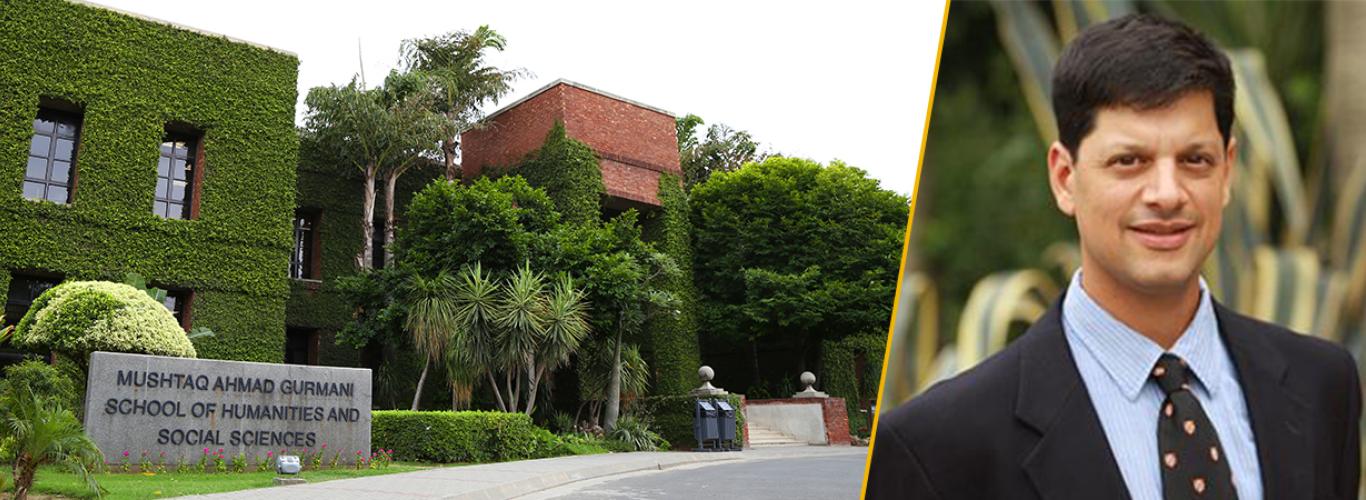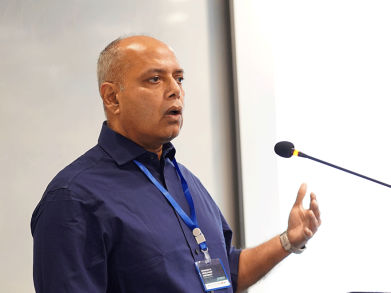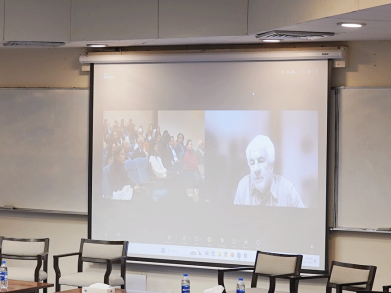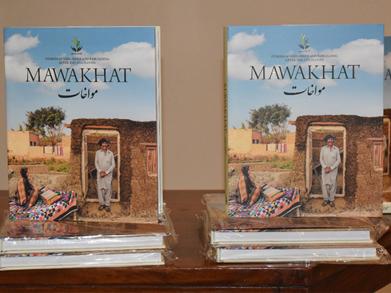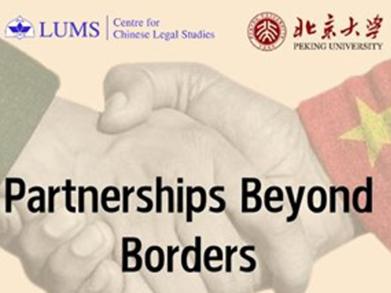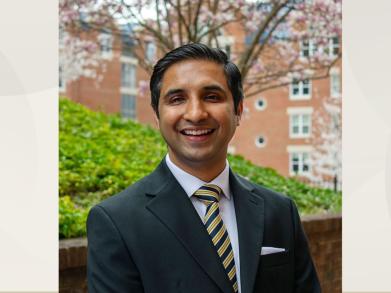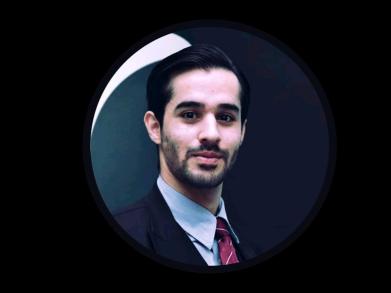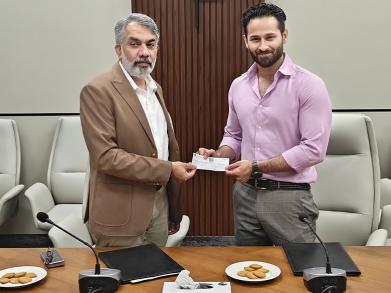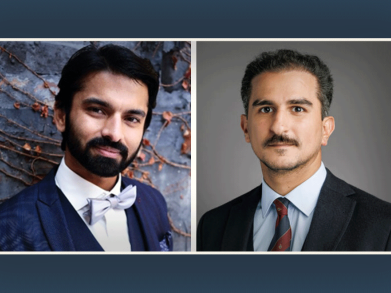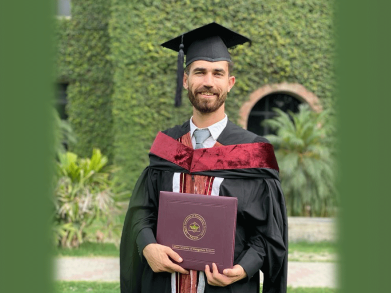In Conversation with the Newly Appointed Dean of the School of Humanities and Social Sciences, Dr. Ali Khan
The Mushtaq Ahmad Gurmani School of Humanities and Social Sciences (MGSHSS) is the largest School at LUMS in terms of the number of students. With a focused multidisciplinary approach, the School imparts a high-quality liberal arts education and produces individuals who are reflective, empathetic, and historically informed.
Dr. Ali Khan has been appointed as the Dean of MGSHSS for a three-year term commencing June 15, 2020. The appointment comes after a rigorous search process and a unanimous decision by the Search Committee and endorsed by the Management Committee.
Dr. Khan has served LUMS for over 15 years. He has been on numerous committees at the University, including the team responsible for the implementation of the core curriculum in Humanities and Social Sciences. He has also served as the Department Chair of Humanities and Social Sciences for over a decade and has been Acting Dean of the School. Dr. Khan holds an MPhil and PhD in Social Anthropology from the University of Cambridge and an undergraduate degree from the University of Kent in the same subject.
Dr. Khan has authored a monograph on child labour, Representing Children: Power, Policy and the Discourse on Child Labour in the Football Manufacturing Industry of Pakistan, Oxford University Press, 2007 and co-authored a book on cricket in Pakistan titled Cricket Cauldron, I.B.Tauris, 2013. In between, he has also served as the series editor for seven books on Sociology and Anthropology in Pakistan for the Oxford University Press. Recently he has edited books on Pakistani cinema including Cinema and Society, Oxford University Press, 2016, and Film and Cinephilia, Oxford University Press, 2020.
Talking about his areas of interest for research, he says, “I started working on labour issues particularly, child and forced labour in Pakistan which was an extension of my PhD research. I have since branched out into popular culture in Pakistan, more specifically cinema and cricket. My latest manuscript is a new book on cricket in Pakistan which covers areas such as the spread of cricket in Pakistan, match-fixing and corruption and cricketing relations at an international level.”
He feels that LUMS has played a pivotal role in his professional career and that it is “a wonderful space in which to do research”. He adds, “I have been fortunate to be supported by a wonderful group of colleagues across the University who are always willing to give their input. It has made my work immeasurably better to have these colleagues to bounce ideas off.”
Speaking about the involvement of the faculty concerning future decisions at MGSHSS, he feels that he is committed to collaborative leadership and firmly taking people along with him while making decisions. He strongly believes that shared governance means people have a say and a stake in the direction that the School takes. This might be a little more time consuming but it builds ownership and is something that he stands for. He believes in working with department chairs and the wider faculty to decide collaboratively where changes have to be made. He feels that many things are in place at the School, and what is required is that they build on those solid foundations.
Building on the enormous past achievements of the School of Humanities and Social Sciences, Dr. Khan is dedicated to the future dynamic vision of the School. “We want to ensure that we continue the tradition of advancing knowledge through excellence in teaching and research. The School is also committed to nurturing individuals to be principled, intellectually engaged, and socially responsible. We would like our students to graduate with the capacity to explore widely and deeply, think creatively and critically, and express ideas clearly and effectively,” says Dr. Khan.
With a new Dean at the School, the question arises as to if the role of students will change. On this, Dr. Khan is of the opinion that it will not. He believes that students build the reputation of a school and are the reason that so many faculty love the profession they are in. He states, “We have always had great pride in our students because of their energy and commitment while at LUMS and their enormous achievements once they graduate. I am sure this will continue, and in fact increase. Our graduates are now taking on senior roles in their respective fields so our alumni will also become increasingly important.”
Dr. Khan is very focused and particular about his guidance to future students. He says, “We have wonderful faculty at the School. Students will have the opportunity to learn from the very best in the country, from faculty that are committed to teaching, research and building the institution. Nowhere else in the country will you be offered the range and depth of courses that you will find in this School. I would also urge you to come to MGSHSS with an open mind and explore a variety of courses in order to see where your interest and passion lies.”
The current COVID-19 crises had led the University to change its gears towards an online teaching module. Dr. Khan feels that although online teaching is something that has been thrust upon the University due to circumstances, it can never replace in-class teaching because university education is much more than simply about what happens in class. He feels that “Human interaction is a key element and that cannot be replicated by online teaching. That is not to say that online teaching does not have certain advantages. I hope that going forward we can return to in-class teaching but also use technology in a way that allows us the best of both worlds.”
Speaking from the heart, Dr. Khan believes it is his job to try to create an environment, which allows our faculty, staff and students to reach their potential. He says, “Leadership is not about imposing your will and ideas on others but is about helping others achieve their goals. I think if I am able to do that, the School will look after itself.”

